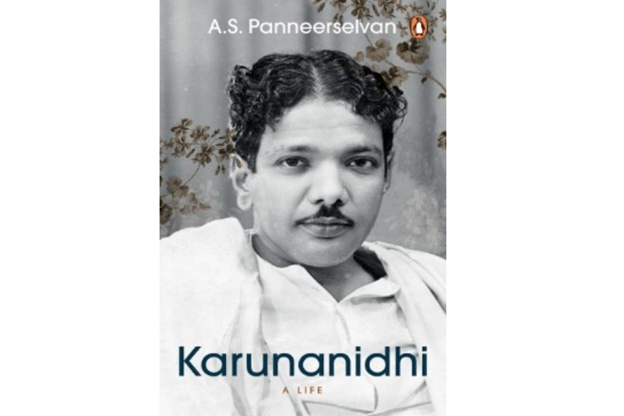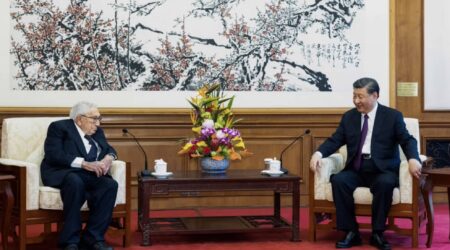In “Karunanidhi: A Life” (Penguin), A.S. Panneerselvan tells the story of the man who became a metaphor for modern Tamil Nadu, where language, empowerment, self-respect, art, literary forms and films coalesced to lend a unique vibrancy to politics.
Writer-politician Muthuvel Karunanidhi is among the most important political leaders India has ever seen. He was the chief minister of Tamil Nadu for five terms and the leader of the Dravida Munnetra Kazhagam (DMK) for over five decades. He was ardent as a social reformer and unrelenting as an opposition leader.
On the political stage, his charisma and acerbic wit defined the rhetoric of Tamil Nadu. In the national arena, he was a keen and strategically useful facilitator for various coalition governments. On the international front, he was vocal about the Tamil question in Sri Lanka.
He left an indelible mark on the cultural landscape of India with his influence on linguistic politics. He believed in protecting not just the linguistic plurality of India but also its federal core. He was multifaceted and yet he seemed to be unknowable at times.
The book does justice to the ambitious twin tasks undertaken by the biographer to tell the story of a man born and raised in deprivation, who suffered hardships and stigma on account of both his caste and class, but who “through sheer imagination, articulation, hard work and a zest for life transformed himself into a statesman and renegotiated power for millions and secured self-respect for them”; and through this story get “an insight into the workings of the modern Indian state”, N. Ram, former Editor-in-Chief of The Hindu, writes in the Foreword.
Karunanidhi never lost a single election and repeatedly played kingmaker at the national level. His relentless battle to establish Tamil Nadu’s distinct linguistic and cultural identity, together with his bitter rivalry with MGR and MGR’s protegy Jayalalithaa, shaped the southern state’s history for over five decades. Karunanidhi was also a towering Tamil literary figure, a radical social reformer and a brilliant administrator who helped transform his state into one of the most progressive and prosperous in India. And he had a colorful and turbulent family life managing two wives in two households, the hostility between his two sons (MK Stalin and MK Alagiri) and the aspirations of his ambitious nephews. From this intimate biography emerges a full-blooded portrait of a multifaceted leader whose political as well as personal life was as full of action and drama as the blockbuster film scripts he wrote.
A.S. Panneerselvan is currently the readers’ editor of The Hindu. He has served as the newspaper’s independent, full-time internal ombudsman since 2012. Apart from being a regular columnist, he is also an adjunct professor at the Asian College of Journalism, Chennai. His wide experience in both print and television journalism includes extensive reporting on conflicts in Sri Lanka, Kashmir and India’s north-east region.
This is the second biography of Karunanidhi to hit the stands in the last 12 months after “Karunanidhi: The Definitive Biography” (Juggernaut) by noted Tamil journalist and author Vaasanthi, who notes that in the rough and tumble of Tamil Nadu politics, Karunanidhi was a fighter to the end.
“And what a fighter he was too! Even after his death his spirit seemed to be fighting – fighting for the right to be buried next to his beloved mentor, C.N. Annadurai”. That was the final battle that Karunanidhi won, Vasanthi writes.











